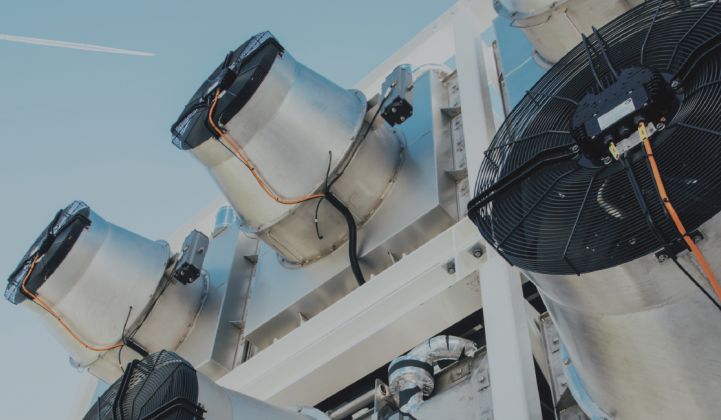Y Combinator -- the accelerator program that birthed some of Silicon Valley’s hottest startups like Airbnb and Dropbox -- is looking for founders with an unusual interest: sucking carbon dioxide emissions out of the atmosphere.
While Y Combinator has funded startups that generate clean energy and build electric vehicles, the Valley group has recently expressed interest in founders that want to create devices and business models around intentionally removing, recycling and sequestering carbon. Such startups could remove carbon by a variety of means, such as creating direct air capture technologies, developing biochar solutions or reimagining reforestation projects.
On Tuesday morning, Y Combinator updated its requests for startups webpage with a new section for “carbon removal technologies.” Y Combinator originally created the RFS page as a way to show entrepreneurs the sectors the group is particularly excited about and that tend to be underserved by the program. The webpage is updated every few months and includes two dozen topics from energy to AI to biotech.
The move is a small step for the group that over the past decade has funded more than 1,500 startups and has been a model to the rest of Silicon Valley in terms of how to seed early-stage ventures. Many of its alumni startups are at the cutting edge of internet, mobile and computing technologies, and have a combined value of over $80 billion.
Y Combinator’s nod to carbon removal tech -- a sector still in its infancy -- could be part of a broader wave of researchers, scientists and energy companies that have more recently looked to innovate around carbon-capture technologies. Part of that renewed interest could stem from a recently boosted tax credit for capturing, storing and removing carbon from the atmosphere, which President Trump signed into law last month.
According to some analyses, the tax credit could kick-start the nascent industry and finally make capturing and recycling carbon more economic. The tax credit provides $50 per metric ton of carbon that is buried underground and $35 per metric ton that is used in other ways.
Last year, the amount of carbon dioxide in the atmosphere reached an ominous and record-breaking 410 parts per million. Even if the level of CO2 in the air stops rising and plateaus, to avoid some of the risks of the changing climate, some of the carbon emissions will need to be removed.
That’s where carbon removal technologies and projects come in. An index site called Air Miners lists dozens of companies that have developed various -- and some very creative -- ways to try to pull CO2 out of the air.
While many of these companies are toiling away with prototypes, modeling and experiments, there are a couple of companies that have gotten a little further along. Carbon Engineering, which Bill Gates has invested in, has a pilot plant near Vancouver. Climeworks has its own pilot plant in Switzerland.
Y Combinator Partner Gustaf Alstromer explained, in simple terms, why the accelerator is interested in supporting founders that are focused on carbon removal: “We’ve seen a community that wants to take a very deliberate approach to removing carbon from the atmosphere. We want to help the community and these companies.”
Alstromer said that what’s missing for the carbon removal companies “is a clear idea of what happens next.”
“If you are building carbon removal technologies right now, your main option is to sell to companies that buy carbon," he said. "But that’s not a large enough market yet to solve climate change."
The tax credits could help grow that market. Alstromer described the new tax credits as “encouraging” and said they helped to inspire Y Combinator’s call for carbon removal technologies. At the same time, he noted that the intention of the tax credits is still unclear.




